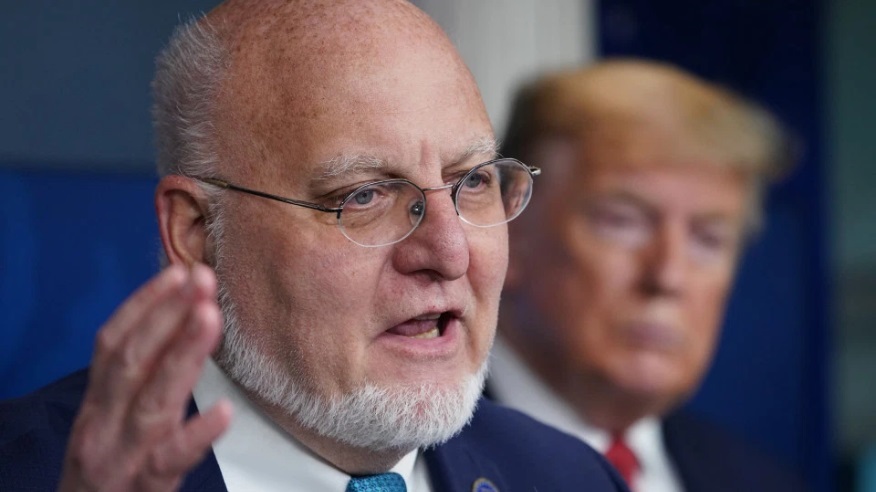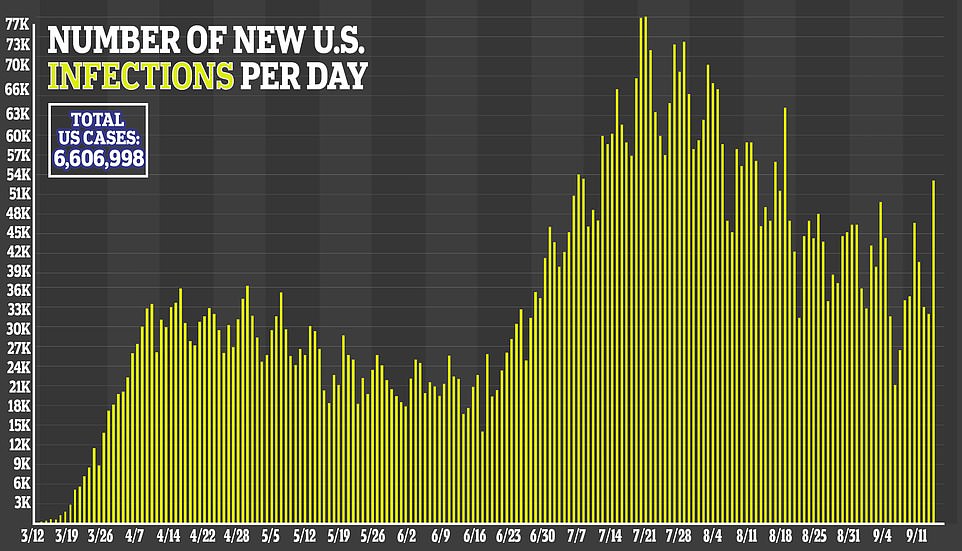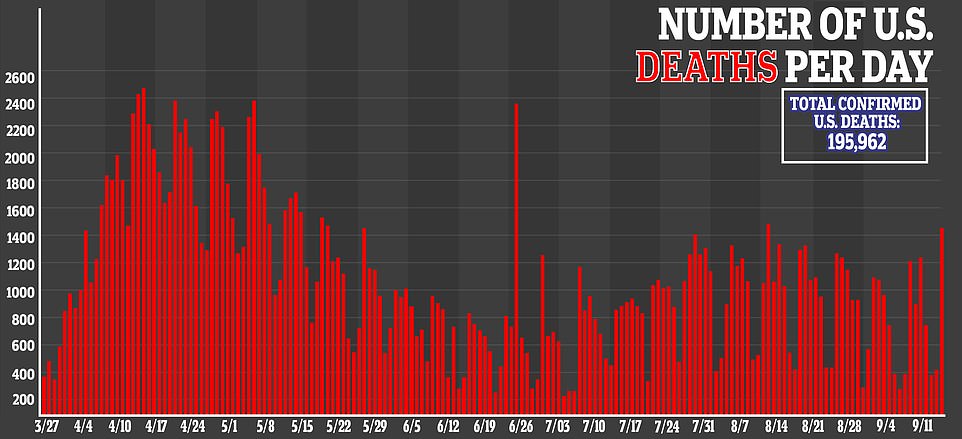Trump knows everything, according to Donald Trump, even as a majority of the public remains skeptical of his statements regarding the coronavirus.
Today he twice contradicted his own CDC director — on mask-wearing and vaccine distribution — saying the country’s top public health official misspoke while testifying under oath before a congressional committee earlier in the day.
Robert Redfield told the Senate Appropriations Committee that wearing a mask could be more effective than a coronavirus vaccine at keeping the pandemic at bay.
“If I don’t get an immune response [from a Covid-19] vaccine it’s not going to protect me. This face mask will,” he said.
Trump said Redfield was mistaken.
“No, the mask is not as important as the vaccine,” Trump told reporters at a White House briefing today, adding that he called up the CDC director to discuss his remarks to Congress. “As far as the mask is concerned, he made a mistake.”
The exchange is only the latest example of the president publicly discrediting his own health officials on the coronavirus pandemic response and clashing with government scientists on everything from the evolving threat of the virus to the timeline for a vaccine.
It also comes as Trump continues holding large indoor rallies and largely avoiding wearing a face mask, despite the CDC’s recommendations.
Redfield has said the president should embrace face coverings to set an example for the public, though Trump on Wednesday again questioned their effectiveness.
Redfield, shortly after Trump’s comments, tweeted that a “Covid-19 vaccine is the thing that will get Americans back to normal everyday life,” adding that masks are still the best defense we currently have against the virus, along with hand hygiene, social distancing and avoiding crowds.
Trump also took issue with Redfield’s remarks to Congress suggesting that the U.S. general public likely wouldn’t have access to a coronavirus vaccine until next summer or fall, predicting a faster timeline than his health officials.
“It’s just incorrect information,” Trump said. “When he said it, I believe he was confused. … It’s going to be a much faster distribution process.”
Trump told reporters that once the FDA approves a vaccine, his administration plans to distribute as many as 100 million doses by the end of the year, with health care workers and vulnerable populations getting prioritized.
He added that the broader public would have access to the vaccine shortly after.
Most of the vaccines in development would require two doses per person.
Scott Atlas, who advises the president on the coronavirus, told reporters at the briefing that the administration estimates roughly 700 million vaccines could be distributed to the public by the end of March, offering a more optimistic timeline than Redfield.
Redfield just hours earlier told the Senate Appropriations Committee it will take about six to nine months to get the American public vaccinated from the date a vaccine is approved.
And the scientific leader of Operation Warp Speed, the government’s vaccine accelerator program, wrote late last month that as many as 300 million vaccine doses may be “deployed by mid-2021” — similar to Redfield’s timeline.
The CDC released its ambitious plan on Wednesday to distribute and administer Covid-19 vaccines, involving HHS as well as the Defense Department.
Doses could be available as early as November to specific populations, though final decisions on who will be prioritized will be made down the road.
Atlas said minority populations and older adults would be among those groups.
This isn’t the first time Trump has singled out his CDC director.
In April, Trump, who had downplayed the threat of a bad flu season, demanded that Redfield publicly clarify comments he made warning that influenza could be particularly challenging amid the pandemic.
Redfield, however, reaffirmed his comments, and has continued to warn about the dangers of a bad flu season this year.
Trump’s rebuke of Redfield also comes as his adminstration is under fire for interfering with the CDC’s weekly scientific reports that are used to update and inform the medical and scientific communities, state and local health departments, and the public on the evolving coronavirus pandemic.


